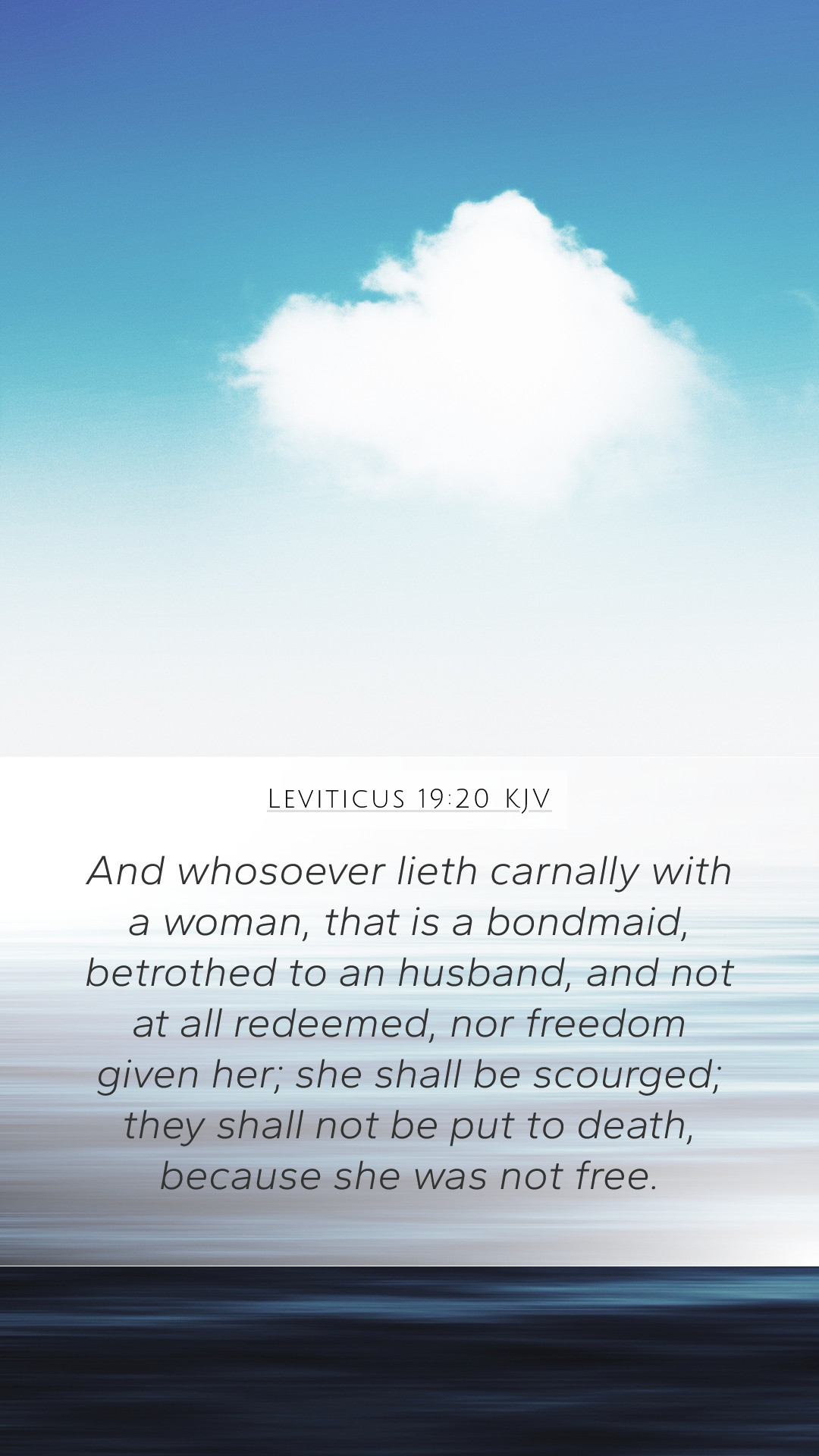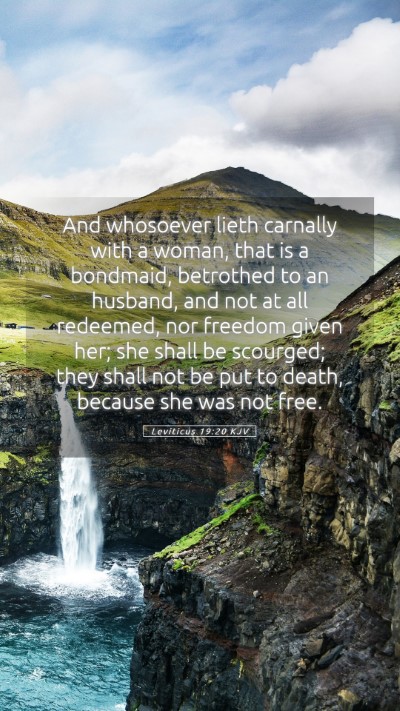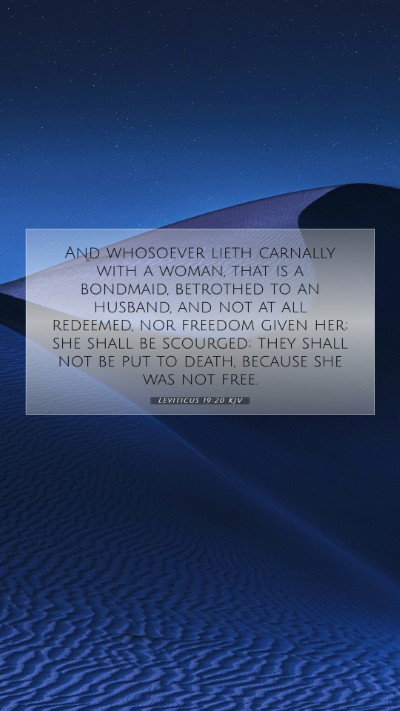Understanding Leviticus 19:20
Leviticus 19:20 states: "And whosoever lieth carnally with a woman, that is a bondmaid, betrothed to an husband, and not at all redeemed, nor freedom given her; she shall be scourged; they shall not be put to death, because she was not free."
Bible Verse Meaning
This verse addresses the conduct expected within the community of Israel, particularly regarding the treatment and rights of bondmaids. It sets a distinction between individuals based on their social status and marital engagements.
Commentary Insights
-
Matthew Henry's Commentary:
Henry discusses the moral implications of this verse. He explains that the bondmaid, being under the authority of her master, is in a vulnerable position. The text highlights God's concern for justice and the protection of the rights of the oppressed. Henry notes that while this sin of lying with a bondmaid is wrong, the punishment differs from that of a free woman, emphasizing the social context of sin and punishment.
-
Albert Barnes' Notes:
Barnes emphasizes the legal ramifications outlined in this verse. He indicates that the bondmaid, although betrothed, does not possess full rights as a free person and thus, the nature of her punishment is appropriately adjusted to her status. Barnes also reflects on the concept of societal order and the importance of recognizing the legal implications surrounding marriage, betrothal, and servitude.
-
Adam Clarke's Commentary:
Clarke delves into the broader implications of justice and grace in relation to this verse. He points out that the bondmaid's situation represents a greater underlying theme of mercy within the Law. Clarke comments on how this law served not only to curb sin but also to provide a system that would ultimately lead to more profound teachings of grace and redemption found later in Scripture.
Biblical Exegesis
The exegesis of Leviticus 19:20 involves understanding the historical and cultural context of ancient Israelite society. The mention of bondmaids illustrates the socio-legal framework of the time, where the rights of individuals, especially those in servitude, were carefully delineated to maintain social order and justice.
Key Themes Identified
- Justice: The verse demonstrates God's desire for justice even in complex social arrangements.
- Rights of the Vulnerable: It highlights the need to be mindful of and protect those in vulnerable positions, emphasizing that God's law seeks to uplift the downtrodden.
- Social Conditions: The laws regarding bondmaids illustrate the specific cultural practices of the time and how they were to interact with the laws of morality.
Applying Leviticus 19:20 to Daily Life
Understanding this verse invites readers to reflect on the modern implications of justice, equity, and compassion in their own lives. It encourages us to consider how we uphold the rights of the marginalized and the importance of treating every individual with dignity, regardless of their societal status.
Related Bible Verses
- Exodus 21:7-11 - Discusses the regulations concerning female servants.
- Deuteronomy 24:7 - Addresses the issue of kidnapping and the implications of serving others.
- Galatians 3:28 - Illustrates the equality of all women and men in Christ, transcending societal norms.
Bible Study Insights
For individuals engaged in Bible study groups or online Bible study, this verse serves as a prompt to discuss themes of law, mercy, and societal ethics. It presents an opportunity for deeper Scripture analysis, facilitating conversations about how ancient laws translate into modern ethical considerations.
Conclusion
In summary, Leviticus 19:20 encapsulates vital lessons about justice, the protection of the vulnerable, and the implications of moral laws within a community. Engaging with this verse through various Bible study tools and resources can enhance understanding and application in today’s context.


